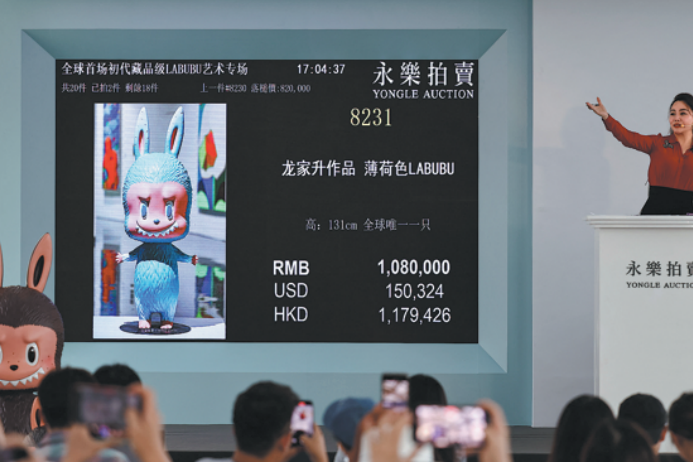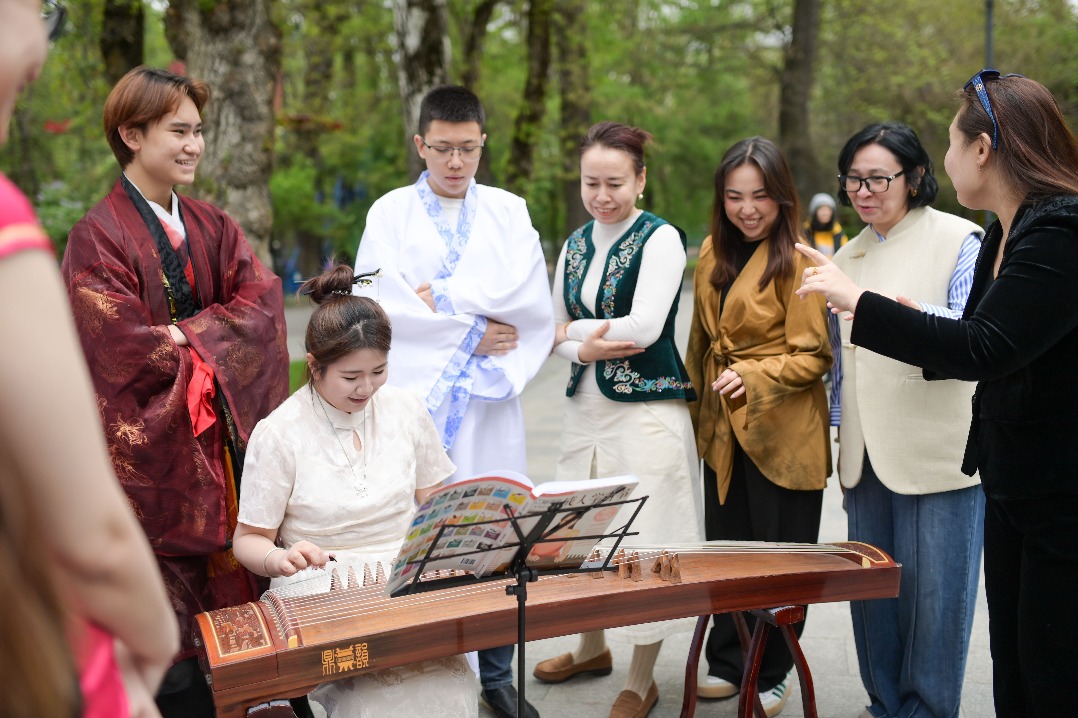Kunqu Opera still flourishing despite fears for future


Kunqu, that grandest of all Chinese opera forms, has every intention of sticking around for many years to come, despite the fears for its future that many have often voiced.
Zhang Miao, 22, a fresh Chinese language and literature graduate student at Peking University, became a recent convert to Kunqu -- and her passion for it augurs well for the efforts being made to promote learning and teaching about it at universities. In August, she received an admission letter from the School of Arts at Peking University.
Zhang, from Anhui province, first became acquainted with Kunqu Opera four years ago when she was a first-year student at the university and joined its Kunqu Club. She also enrolled in a course called Appreciation of Classic Kunqu Opera and took a role in the campus version of The Peony Pavilion, written by Tang Xianzu (1550-1616).
She became so enamored with opera that she eventually decided to change her field of study. She plans to research the performance of opera during her postgraduate study.
The appreciation class and the performance Zhang took part in are central to an all-out government effort to promote the learning and teaching of Kunqu Opera in universities.
On July 10, Tongji University and the Shanghai Kunqu Opera Troupe initiated a new project to recruit students of universities and high schools in Yangtze River Delta to learn and perform the student version of the Hall of Longevity. The project started in August and experienced performers from the troupe will be the tutors.
Kunqu is one of the oldest types of operas in China, dating back to the Ming Dynasty (1368-1644). It combines singing, dancing, gestures and poetry recital, but the verse is delivered in archaic language made all the more difficult to grasp because it is in a southern dialect. As charming as that may be, it puts the opera out of reach for most people, which probably helps explain the broad indifference that has helped sow its slow decline since the 18th century.
























